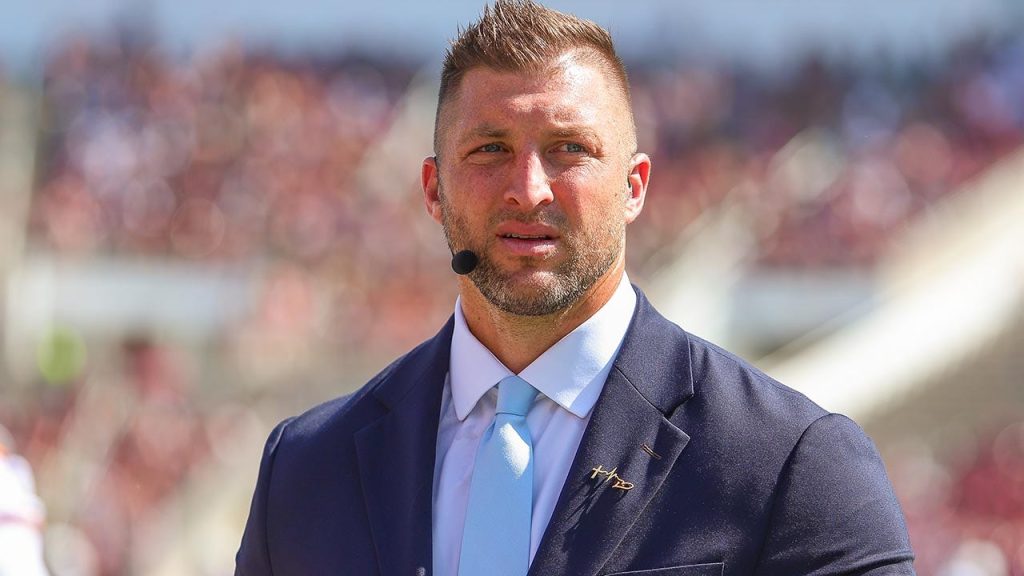Paragraph 1: Devastating Wildfires Engulf California, Prompting Prayers and Support
California is currently battling a series of devastating wildfires that have scorched thousands of acres, destroyed homes, and tragically claimed lives. The blazes, intensified by prolonged drought and dry conditions, have forced evacuations, disrupted daily life, and prompted an outpouring of support and concern from across the nation. Public figures like former NFL quarterback Tim Tebow have expressed their empathy and offered prayers for the affected communities, reflecting the widespread sense of helplessness and the urgent need for relief. The fires have also impacted the sports world, leading to the postponement of games and highlighting the pervasive reach of this natural disaster. The situation underscores the vulnerability of communities to the increasing threat of wildfires, exacerbated by climate change, and the importance of collective efforts in disaster response and mitigation.
Paragraph 2: Tim Tebow’s Plea for Divine Intervention and Community Resilience
In a heartfelt message posted on X (formerly Twitter), Tim Tebow, a prominent sports figure and devout Christian, shared his deep concern for those impacted by the California wildfires. Expressing a sense of shared grief and helplessness, Tebow turned to prayer, publicly beseeching God to intervene and bring much-needed rain to quell the flames. His prayer extended beyond the immediate need for rain, encompassing a plea for protection and strength for first responders battling the inferno, comfort for those who have suffered losses, and a reminder of God’s unwavering presence in times of adversity. Tebow’s message resonated with many, highlighting the role of faith and community support in coping with such devastating events. His public expression of prayer exemplifies the human instinct to seek solace and hope in times of crisis.
Paragraph 3: The Ripple Effect of Wildfires on the Sports Landscape and Beyond
The California wildfires have extended their disruptive reach into the realm of professional sports, forcing the postponement of several games scheduled at Crypto.com Arena in Los Angeles. This disruption underscores the interconnectedness of community life and the far-reaching consequences of natural disasters. Even Los Angeles Lakers head coach JJ Redick personally experienced the devastating impact of the fires, losing his home after his family was forced to evacuate. The NFL also developed contingency plans for the Monday night Vikings-Rams playoff game, originally slated for Englewood but potentially relocated to Glendale, Arizona, if the fires pose a safety risk. These adjustments demonstrate the adaptability required in the face of unforeseen circumstances and the prioritization of safety in the midst of a crisis.
Paragraph 4: California’s Persistent Drought and the Devastating Eaton Fire
The severity of the California wildfires is exacerbated by an extended period of drought, with the last significant rainfall in Los Angeles recorded months ago, in May. This prolonged dry spell has created tinderbox conditions, making vegetation highly susceptible to ignition and rapid spread of fire. The Eaton fire, one of the most destructive in the current series of blazes, tragically claimed five lives and consumed a local golf course clubhouse, further highlighting the devastating consequences of these natural disasters. This prolonged drought underscores the critical need for long-term water management strategies and the importance of understanding the link between climate change and the increased frequency and intensity of wildfires.
Paragraph 5: Government Response and Mobilization of Resources
Recognizing the severity of the situation, President Biden met with California Governor Gavin Newsom to discuss federal support for the state’s firefighting efforts. Governor Newsom also activated the National Guard, deploying troops to assist in battling the blazes, signifying the scale of the disaster and the need for extensive resources. The closure of nearly 100 schools in the Los Angeles area further emphasizes the disruption to daily life and the prioritization of safety in affected communities. Even Florida Governor Ron DeSantis offered assistance, demonstrating a spirit of inter-state cooperation in times of crisis. This coordinated response reflects the importance of collaboration and resource mobilization at all levels of government in addressing large-scale natural disasters.
Paragraph 6: The Long Road to Recovery and the Importance of Community Support
As firefighters continue to battle the flames and communities grapple with the aftermath of these devastating wildfires, the long road to recovery begins. The immediate focus is on containing the fires, providing shelter and support to evacuees, and assessing the extent of the damage. However, the long-term recovery will require sustained efforts to rebuild homes and businesses, restore the natural environment, and address the underlying factors contributing to the increased risk of wildfires. The outpouring of support from individuals, organizations, and government agencies underscores the importance of community resilience and the power of collective action in overcoming such challenges. The California wildfires serve as a stark reminder of the devastating impact of natural disasters and the critical need for preparedness, mitigation, and community support in the face of such events.

